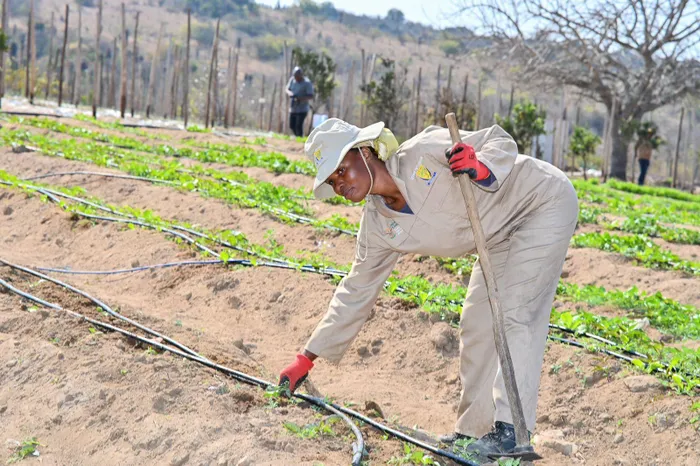
SPAR’s Rural Hub initiative in Polokwane aims to empower small-scale farmers and promote sustainable food systems.
Image: Supplied
In a country where food insecurity and unemployment weigh heavily on communities, SPAR is investing in a model that could change the game: its Rural Hub initiative in Polokwane, empowering small-scale farmers to supply fresh produce into formal markets while driving sustainable food systems.
Launched in 2017 in Mopani, Limpopo, the Rural Hub initiative was created to help small-scale producers break into the formal food value chain. The model equips farmers with technical and food safety training, connects them to funding opportunities, and guarantees a market for their produce.
Through its Rural Hub, SPAR trains farmers in good agricultural practices, guided by the globally recognised GLOBALG.A.P. certification, enabling them to deliver crops in commercial volumes that meet SPAR South Africa’s quality and food safety standards. Ongoing technical assistance comes from an in-house team of five agronomists, who support farmers and transfer skills so that after about five years, they can operate independently and allow new farmers to join the programme. Farmers’ experience and land sizes vary from five to 80 hectares, requiring tailored support from SPAR’s technical team.
One of the success stories of the SPAR Rural Hub is Tebogo Legodi, founder of Boitumelo Agricultural Farming in Ga-Mahoba, Limpopo. After years as a farm manager, he started his own farm in 2022. Motivated by his dream, he bought land and began cultivating cocktail tomatoes for the Rural Hub, with plans to expand gradually.
“Currently, we’re working on eight hectares of land, but only half a hectare is dedicated to cocktail tomatoes. The plan with the SPAR Rural Hub is to increase by half a hectare every year, that’s about 7,000 plants annually, based on last year’s yield,” he said.
Legodi said the SPAR Rural Hub has not only helped him grow his farm but also empowered him to create jobs in his community. Job creation, he stressed, remains one of the biggest challenges facing rural areas.
“On average, when I plan for SPAR, I employ six permanent workers who focus only on the tomatoes, handling everything from fertigation to pesticides. At harvest time, that number grows to between 15 and 30 seasonal workers, and that’s just from half a hectare,” he explained.
Legodi added that with more land, the impact could be even greater.
“Every half a hectare of tomatoes means about 30 jobs, while every hectare of green beans can create work for up to 20 people. The more land we have, the more opportunities we can give young people,” he said.
Legodi also highlighted that access to water remains a major hurdle for expanding his farm.
“One of the biggest challenges we face right now is securing water rights. Without them, the Land Bank won’t fund us, and the Department of Agriculture can only provide limited support. We have the land, but not enough water to fully irrigate it,” he shared.
He further stated that once the water rights are secured, they will be able to access funding, plant more crops, increase production, and create more full-time jobs in the community.
Tumi Moropani from the Supplier Development Hub NPC, a SPAR initiative, explained their hands-on support for farmers from planting to harvest while showing how produce reaches stores.
“We work closely with farmers, visiting fields two to three times a week to monitor crops. If any issues arise, we are just a phone call away. We also help during harvest, using our own trucks to transport produce from the farm to the hub.”
She explained that Boitumelo Agricultural Farming planted their tomatoes just two weeks ago, with harvest expected in about two months. Highlighting the strategic approach to farming, she added that by working with multiple farms, they mitigate risks while ensuring a steady supply to the market.
“We’ve begun our first trial to grow the tomatoes upright. By collaborating across several farms, we spread the risk, so if one crop fails, another secures the supply chain. This way, we not only meet market demand but also build resilience and sustainability into our farming practices,” she said.
The Star
masabata.mkwananzi@inl.co.za